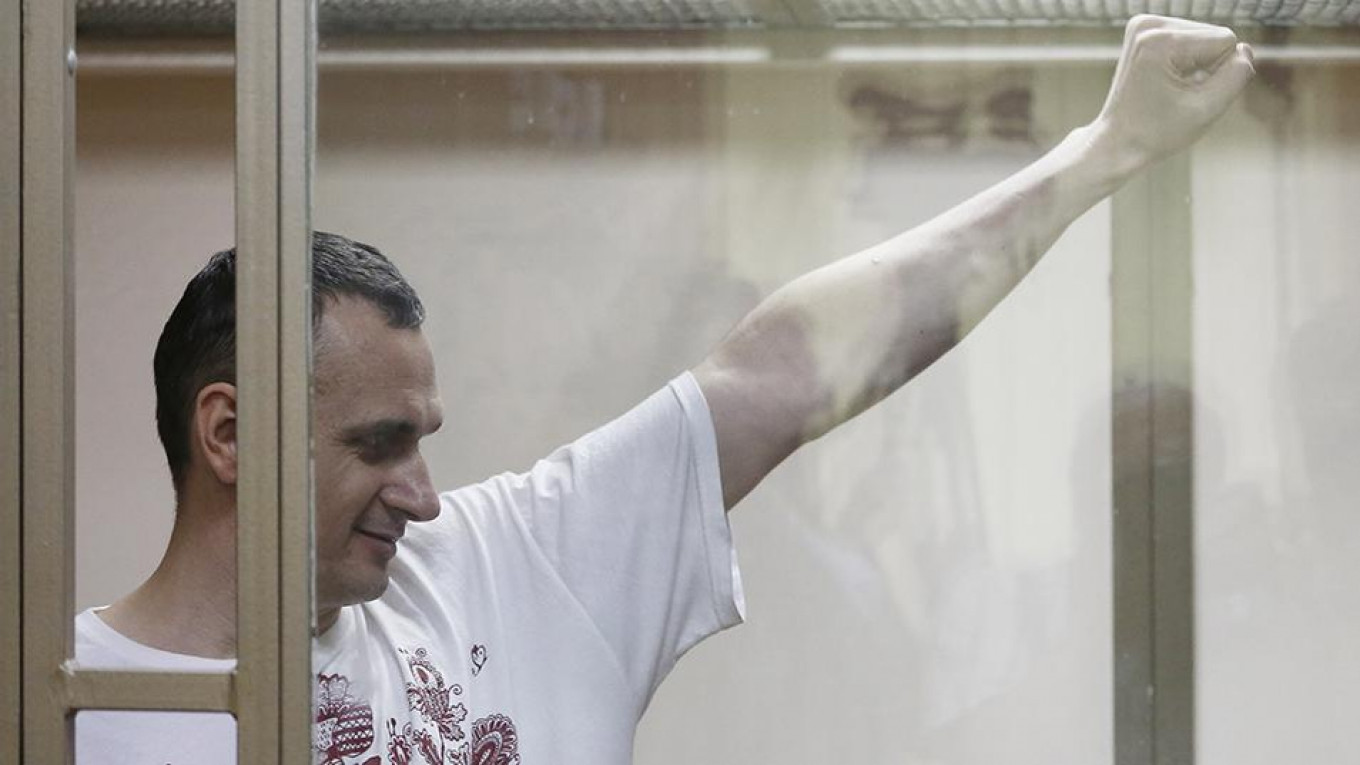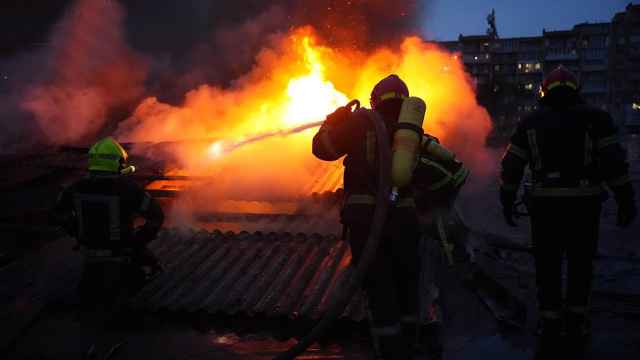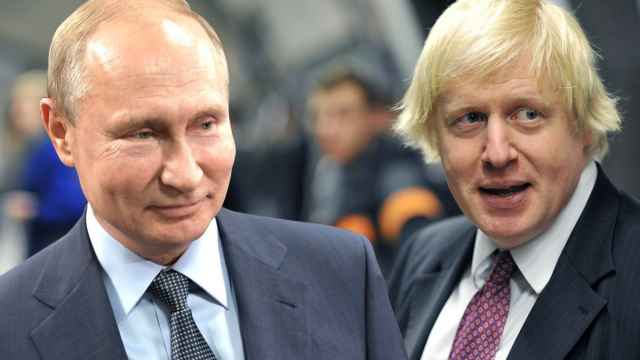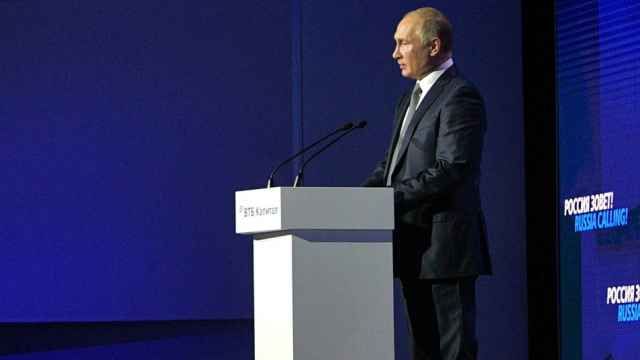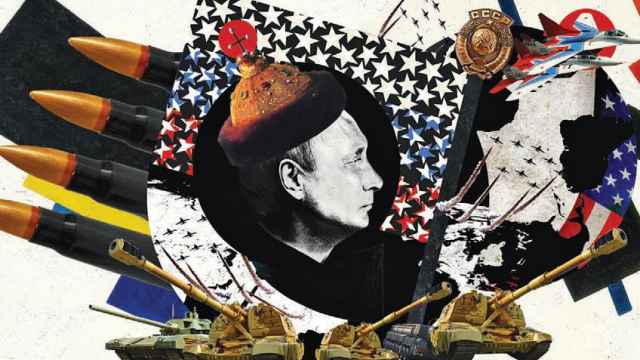Oleg Sentsov is on the 110th day of a hunger strike and his physical health is near collapse. But Russian President Vladimir Putin remains deaf to international calls to free the political prisoner on humanitarian grounds.
In the spring of 2014, Sentsov, a Ukrainian filmmaker who openly opposed the annexation of Crimea by Russia, was accused of setting fire to United Russia party offices on the peninsula. He was arrested and subsequently tried in Russia on invented terrorism charges. He is now serving his 20-year sentence far from his home in Crimea in a penal colony in the Arctic Circle.
In May 2018, Sentsov declared the hunger strike demanding the release of all Ukrainian political prisoners held by Russia.
Pleas addressed directly to President Putin to free Sentsov from leaders of France, Ukraine, and the Council of Europe, experts from the UN and the Organization for the Security and Co-operation in Europe (OSCE), filmmakers, philosophers, journalists, writers and non-governmental organizations, have all gone unheeded.
Domestic efforts, too, to secure his release for humanitarian reasons have not fared any better. When a renowned filmmaker Alexander Sokurov publicly asked Putin to pardon Sentsov, Putin replied that the decision rested exclusively with Russia’s judiciary.
A prisoner exchange between Russia and Ukraine could be a far more promising avenue for securing Sentov’s release. Already in July, Russian officials indicated that Sentsov’s name might appear on a list of such prisoners.
Last week, a prisoner exchange was again raised at meeting of members of the Trilateral Contact Group in Minsk, which was formed to facilitate the resolution of the war in Donbass and includes representatives of Ukraine, Russia and the OSCE. On the occasion of the meeting, more than twenty Russian nationals held by Ukrainian authorities issued a formal request to Putin to be exchanged for Ukrainian prisoners held by Russia.
Russia has so far balked at Ukraine’s persistent efforts to agree on an exchange. And Russian Ombudsman for Human Rights Tatyana Moskalkova has said that the exchange of Sentsov is impossible because he is a dual Ukrainian-Russian citizen.
This is a specious argument. Sentsov never requested Russian citizenship, and, according to international humanitarian law, an occupying power cannot require nationals of the occupied country to swear allegiance to the hostile authorities.
Sentsov’s release would right at least some of the wrongs committed by Russia with respect to his prosecution under international law. Indeed, Sentsov’s trial was condemned by numerous NGOs and international organizations for falling short of international human rights law standards, including through the alleged torture of a key witness.
Under the Fourth Geneva Convention, the law applicable to the regime of occupation, Sentsov, who was arrested in the occupied territory, should have been tried (and detained) in his native Crimea, and accorded all fair trial guarantees as well as visits from the International Committee of the Red Cross. Russia has breached every one of these international obligations.
There is nothing in the Russian law that prevents Putin from granting the executive pardon to Sentsov in order to affect the exchange, which he has done in similar circumstances.
In 2016, former Ukrainian fighter pilot Nadyia Savchenko, who was detained by pro-Russian rebels in East Ukraine in June 2014 and subsequently turned over to Russian authorities and tried for terrorism, was sentenced to 22 years of prison by a Russian Court and also declared a hunger strike. She was swapped later that year for two Russian POWs held by the Ukrainian authorities after reciprocal presidential pardons.
In September 2015, Eston Kohver, an officer of the Estonian Internal Security Service was detained by the Russian FSB on Sept. 5, 2014, convicted of espionage in another farcical trial and sentenced to 15 years in prison in Russia. He was returned to Estonia in another prisoner exchange.
Since, in addition to Sentsov, Putin wields power over the lives of several dozen Russian prisoners held by Ukraine, the only remaining alternative to asking for a humanitarian gesture from Putin might be to exert greater pressure on the Russian President to affect the prisoner exchange under the aegis of the OSCE.
Unrelenting pressure from the international community, coupled with domestic voices, should focus more on the necessity of the Kremlin to bring back Russian prisoners, and thus bring Sentsov and other Ukrainian political prisoners back to Ukraine along the way.
Ilya Nuzov is Head of the Eastern Europe-Central Asia Desk at the International Federation for Human Rights. The views expressed in opinion pieces do not necessarily reflect the position of The Moscow Times.
A Message from The Moscow Times:
Dear readers,
We are facing unprecedented challenges. Russia's Prosecutor General's Office has designated The Moscow Times as an "undesirable" organization, criminalizing our work and putting our staff at risk of prosecution. This follows our earlier unjust labeling as a "foreign agent."
These actions are direct attempts to silence independent journalism in Russia. The authorities claim our work "discredits the decisions of the Russian leadership." We see things differently: we strive to provide accurate, unbiased reporting on Russia.
We, the journalists of The Moscow Times, refuse to be silenced. But to continue our work, we need your help.
Your support, no matter how small, makes a world of difference. If you can, please support us monthly starting from just $2. It's quick to set up, and every contribution makes a significant impact.
By supporting The Moscow Times, you're defending open, independent journalism in the face of repression. Thank you for standing with us.
Remind me later.



